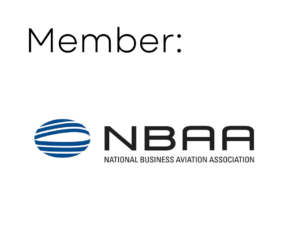By Kyle Schrandt
Managing aircraft logbooks efficiently is crucial for aviation professionals. These records are the backbone of operational safety, regulatory compliance, and aircraft value retention. As the aviation industry embraces digital transformation, it’s essential to understand both the traditional and modern strategies for effective logbook management. This article offers strategic advice for aviation professionals to master aircraft logbook management.

Understanding the Importance of Aircraft Logbooks
Aircraft logbooks are comprehensive records that document the maintenance, inspections, repairs, and operational history of an aircraft. These records are vital for several reasons:
- Safety Assurance: Detailed logbooks ensure that all necessary maintenance and inspections have been performed, thus maintaining the aircraft’s airworthiness.
- Regulatory Compliance: Aviation authorities such as the FAA and EASA require meticulous record-keeping to verify compliance with maintenance regulations and airworthiness directives.
- Aircraft Value: Well-maintained logbooks enhance the resale value of an aircraft by providing potential buyers with a complete and transparent history.
- Operational Efficiency: Efficient logbook management facilitates quick access to critical information, enabling faster decision-making and reducing aircraft downtime.
Strategies for Effective Logbook Management
1. Transition to Digital Logbooks
The shift from paper to digital logbooks is one of the most impactful changes in aviation record-keeping. Digital logbooks offer numerous advantages over traditional paper records:
- Accessibility: Digital records can be accessed from anywhere at any time, providing real-time information to pilots, maintenance crews, and management.
- Security: Advanced encryption and secure storage solutions protect sensitive information from unauthorized access and potential data breaches.
- Efficiency: Digital systems reduce the time spent on manual data entry and retrieval, allowing aviation professionals to focus on more critical tasks.
- Compliance: Digital logbooks ensure all necessary documentation is accurately maintained and easily accessible for regulatory audits and inspections.
2. Implement Comprehensive Training Programs
Effective logbook management requires that all personnel involved are adequately trained. This includes:
- Technical Training: Ensure that maintenance crews and administrative staff are proficient in using digital logbook systems and understand how to enter and retrieve data accurately.
- Regulatory Training: Educate staff on regulatory requirements and the importance of maintaining compliance through accurate record-keeping.
- Continuous Education: Provide ongoing training to keep staff updated on new features, regulatory changes, and best practices in logbook management.
3. Standardize Data Entry Processes
Consistency in data entry is crucial for maintaining accurate and reliable logbooks. Establish standardized procedures for entering information, including:
- Uniform Terminology: Use consistent terminology and abbreviations to prevent confusion and ensure clarity.
- Detailed Entries: Include comprehensive details for each maintenance activity, inspection, and repair to provide a complete history.
- Regular Audits: Conduct regular audits to verify the accuracy of logbook entries and correct any discrepancies.
4. Utilize Automation and Integration
Automation and integration can significantly enhance the efficiency of logbook management:
- Automated Alerts: Implement systems that provide automated alerts for upcoming maintenance, inspections, and regulatory deadlines to ensure timely compliance.
- Integration with Maintenance Systems: Integrate digital logbooks with maintenance tracking software and other operational systems to streamline data flow and reduce redundant data entry.
- Predictive Maintenance: Use data analytics and predictive maintenance tools to identify potential issues before they become critical, thereby improving safety and reducing downtime.

5. Ensure Robust Data Security
Protecting the integrity and confidentiality of logbook data is paramount:
- Secure Storage Solutions: Use cloud-based or on-premises solutions with advanced encryption to safeguard data.
- Access Controls: Implement strict access controls to ensure that only authorized personnel can view or edit logbook entries.
- Regular Backups: Conduct regular backups to prevent data loss in case of system failures or cyber-attacks.
Vision Aircraft Records: A Strategic Partner in Digital Transformation
Vision Aircraft Records is at the forefront of the digital revolution in aviation logbook management. Our comprehensive electronic maintenance logbooks are designed to work as hard as you do, providing the best technology to help your flight department run as efficiently as possible. Here’s why Vision is the best choice for your digital logbook needs:
- FAA Acceptance: Vision Aircraft Records is the only FAA Accepted solution.
- Cloud-Based Security: Vision ensures that all your aircraft’s logbooks are safely secured to the cloud, protecting them from physical damage and unauthorized access. Advanced encryption methods safeguard your data, ensuring that it remains confidential and secure.
- Instant Search Capabilities: With Vision, you can instantly search for any maintenance event, reducing the time spent on manual record searches and enabling quicker decision-making.
- By and For Aviation Professionals: Vision offers a holistic solution that covers all aspects of aircraft maintenance records, providing a complete view of your aircraft’s history and status.
- User-Friendly Interface: Our platform is designed with the user in mind, offering an intuitive interface that is easy to navigate.
- Simple, Transparent Pricing: No hidden fees or surprises.
Conclusion
Mastering aircraft logbook management is essential for aviation professionals who aim to maintain high standards of safety, compliance, and efficiency. By transitioning to digital logbooks, implementing comprehensive training programs, standardizing data entry processes, utilizing automation, and ensuring robust data security, aviation professionals can significantly enhance their logbook management practices.
Vision Aircraft Records stands ready to assist in this transformation, providing state-of-the-art digital logbook solutions that set the standard for the industry. Embrace the future of aviation with Vision Aircraft Records and experience the benefits of efficient, secure, and compliant logbook management.
